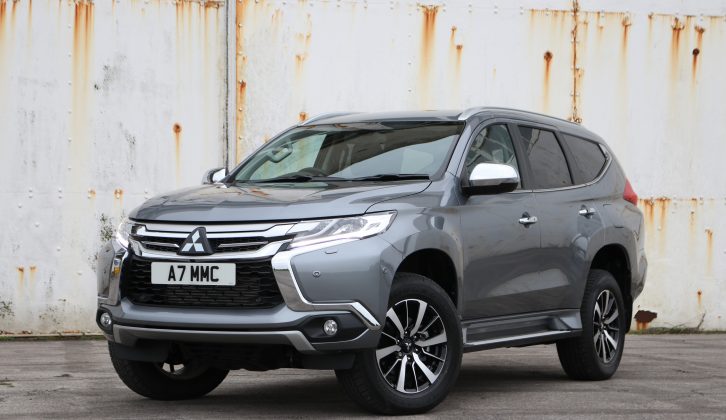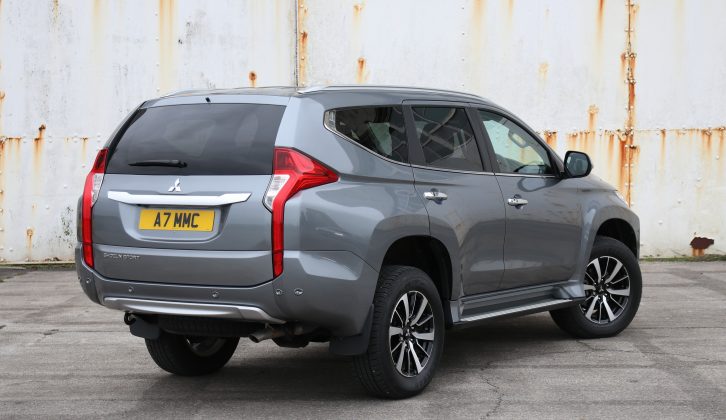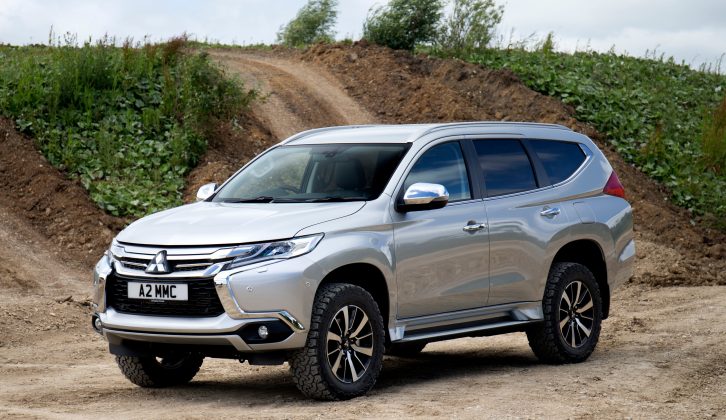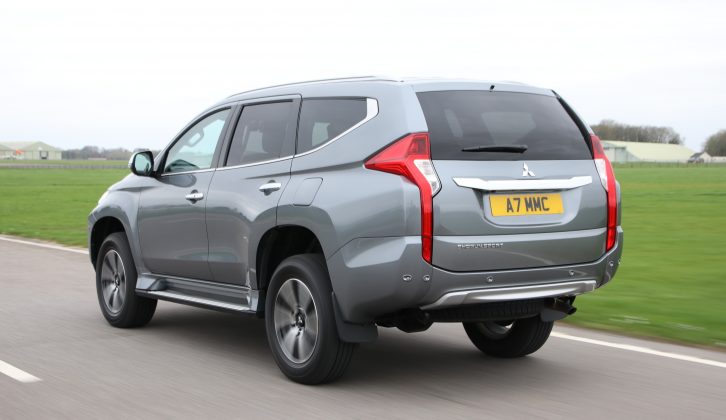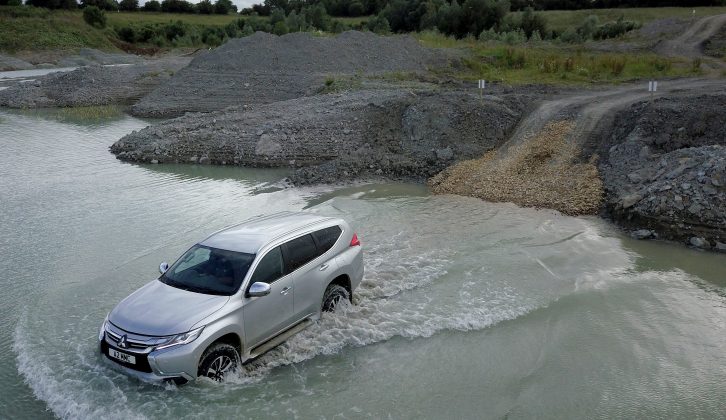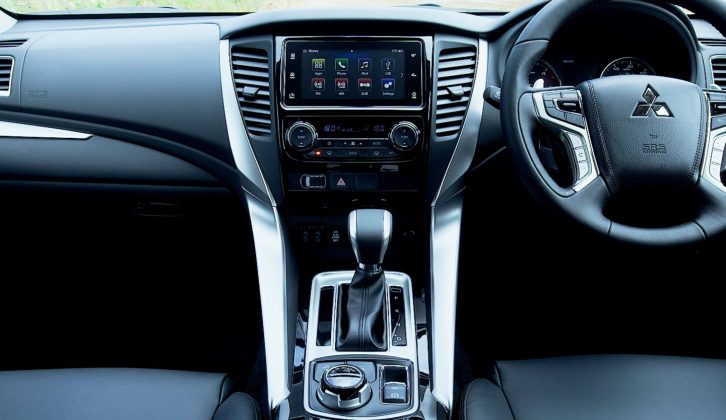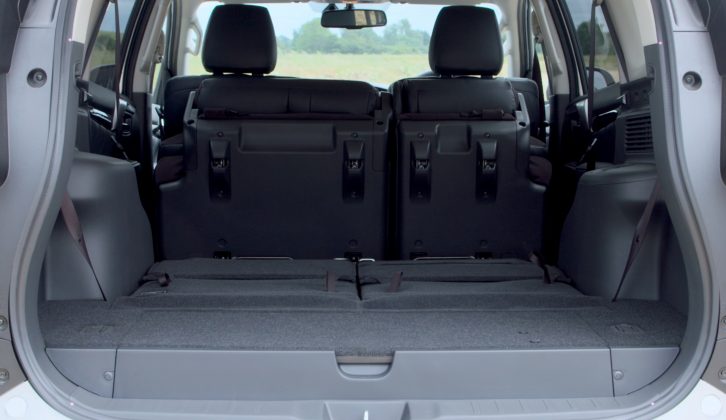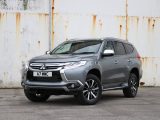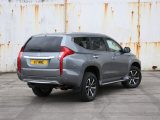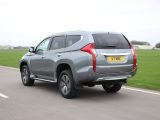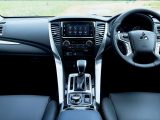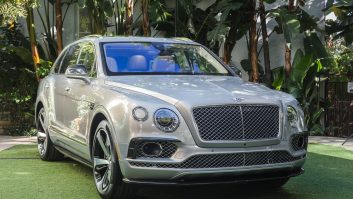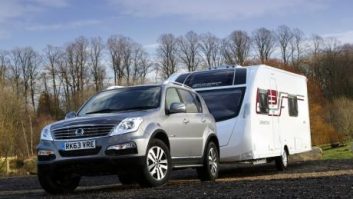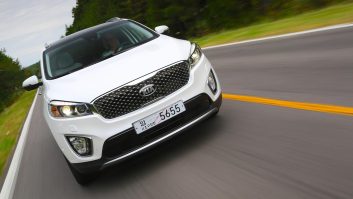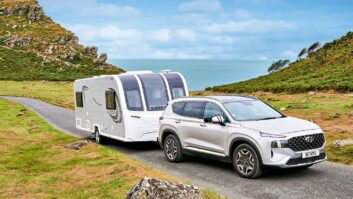Most off-roaders aren’t much cop off road. Car makers have long since understood that while buyers like the high-up driving position and the tough image, many would no more cover their shiny new SUV in mud than go paragliding off the rim of a volcano. So why bother making a car that bashes boulders into submission if it’s never going to climb anything steeper than the nearest kerb?
There’s still a place for a proper 4×4, though, and some manufacturers continue to make old-school off-roaders. Think body-on-chassis construction, long-travel suspension, low-ratio gearboxes and locking differentials.
Despite the modern styling, the new Mitsubishi Shogun Sport is very definitely a proper 4×4. We took it around a tough off-road route complete with vertigo-inducing drops, cliff-like climbs, and water deep enough to make you wonder if a boat wouldn’t be more appropriate transport. The Shogun Sport handled it all with ease, although it would have been more impressive still if the cars Mitsubishi used on the off-road route had been fitted with road tyres instead of specialist mud-plugging rubber.
Extra ability in reserve
It would take a particularly twisted sense of adventure to tow a caravan over such terrain, but it does suggest that a few drops of morning dew won’t stop the Mitsubishi towing a caravan away from a grassy pitch. It’s always good to have some extra ability in reserve…
Hill starts shouldn’t be a problem, either. The hill-hold function, which stops the car rolling backwards even if the parking brake hasn’t been applied, works extremely well, and torquey engine and eight-speed automatic gearbox make it easy to pull away.
Take a look at the spec sheet and there are other features which suggest the Shogun Sport should make a capable tow car. Body-on-chassis construction usually makes for a vehicle that’s much heavier than rivals with a monocoque build, and so it proves in this case. Including 75kg for the driver which Mitsubishi doesn’t include in its published kerbweights, the Shogun Sport weighs 2175kg (2080kg for the range-topping version). That’s significantly heavier than a Land Rover Discovery Sport, Kia Sorento, or Škoda Kodiaq, and gives an 85% match figure of 1849kg. The legal towing limit is also high at 3100kg, and it’s pleasing that all cars have Trailer Stability Assist to help keep car and caravan under control while towing.
How well will it tow, though?
How well will the Mitsubishi Shogun Sport tow? Its on-paper credentials are good but the way the car performed in solo driving leads us to have some reservations. The ride is fidgety, which sometimes translates into unsettled towing at speed. Of course, we’ll have to reserve final judgement until we’ve towed with the car. It may be that the sheer heft of the thing bullies any suitably matched caravan into submission.
What is clear is that however able the Shogun Sport is on muddy tracks and steep slopes, it’s compromised as a road car. The steering is vague and needs lots of turns to negotiate tight bends, and there’s plenty of lean while cornering. It doesn’t match the comfort of a Kia Sorento or the poised handling of a Skoda Kodiaq.
Is ‘Sport’ overstating it?
Performance is rather steady. The 2.4-litre diesel engine (there’s no petrol model) may have 317lb ft of torque but, largely due to the car’s weight, acceleration is pedestrian. The eight-speed automatic gearbox changes gear smoothly, though, and there are paddles behind the wheel if you want to take charge of gear selection for yourself. But however much you flip paddles and however heavy your right foot, the ‘Sport’ part of the Shogun’s name seems a bit optimistic.
We could live with Shogun Sport’s leisurely acceleration, but we’d think twice about the fuel bills. An official combined figure of 32.8mpg is poor when the equivalent Kia returns 43.5mpg and a similar Škoda returns 49.6mpg. Insurance premiums are also going to be high, as the more basic of two models sits in group 43. The higher-spec car sits in group 38 because of extra driver assistance systems, but either way most rivals will be cheaper to insure.
The top-of-the-range car (badged ‘4’) has Adaptive Cruise Control, Forward Collision Mitigation, Blind Spot Warning, and an ultrasonic mis-acceleration Mitigation System, designed to reduce the chances of an accidental bump while pulling away.
Other additional items include heated front seats, a more powerful stereo, headlamp washers, and a system of cameras giving a 360˚ view around the car. That should prove handy if you need to hitch up on your own.
All that kit brings the price to £39,775, which is £2000 more than ‘3’ spec cars. It seems harsh to describe these as entry-level when the kit list includes leather upholstery, reversing sensors and a rear-view camera, Bluetooth connectivity, dual-zone climate control, seven seats and lots more.
More robust than plush
Inside, the Shogun Sport seems well screwed together although the finish is more robust than plush – that’s not necessarily a bad thing for an owner planning to use the car’s off-road potential. There’s plenty of room in the front, and enough space in the middle for adults to be comfortable. In the third row grown-ups will be happy enough for short trips, but sitting low to the floor with your knees pushed up high won’t be comfortable for long.
Boot space is very tight if all the seats are upright. You can squeeze in a few bags of shopping but not a lot more. With the third row folded there’s a more useful 502 litres. However, that’s a smaller capacity than the Sorento’s or the Kodiaq’s.
So if you are looking for a seven-seat 4×4 to tow your caravan should the Shogun Sport be on your shopping list? If you’ll use the car’s off-road abilities to the full, then yes. But if you rarely head off Tarmac there are better SUVs to spend your money on.
